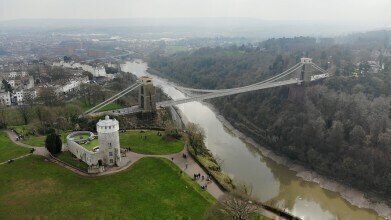Air Monitoring
Will Bristol Become the First UK City to Ban Diesel Vehicles?
Nov 19 2019
Bristol looks likely to become the first city in Britain to ban diesel vehicles from straying inside certain areas within the city centre, after the initial proposal to implement the measure from March 2021 was given the green light. The initiative has been launched by Bristol City Council in a bid to clean up its illegally polluted airways.
Bristol is just one of 24 cities in the UK tasked with measuring, managing and curbing nitrogen oxide (NOx) gas emissions, but it’s the first to suggest an outright ban on privately owned diesel cars. Anyone caught trespassing inside the limits will be subject to a fine, with the exception of the emergency services and taxi drivers.
When, where and how
After being agreed upon at the beginning of this month, the ban is set to take effect from March 2021. The most heavily protected zone will encompass the old city, the Harbourside, Redcliffe, Spike Island and parts of the M32. From 7am to 3pm, the affected area will be off-limits to all diesel vehicles except ambulances and taxis.
At the same time, the council is planning to introduce a more far-reaching Clean Air Zone (CAZ), which buses, taxis, vans and lorries must pay a fee to enter. The three former vehicle types will be charged £9 per day, while HGVs must pay as much as £100 daily. Private vehicles will be able to come and go throughout the CAZ without any charge or risk of penalty.
Both systems will be enforced via the use of number plate recognition technology in CCTV cameras, just as the ultra-low emissions scheme (ULEZ) scheme and congestion charge in London is managed currently. However, details as to how much fines will be or who will be eligible for exemption from the ban have yet to be determined.
Setting an example
With an ever greater emphasis being placed on the vital role of monitoring air quality in cities, the government had asked 24 local authorities to come up with plans for how it would tackle the issue in 2017. After failing to meet the deadline for proposal submission on two occasions, Bristol have finally announced their solution – and it’s a UK first.
As mentioned above, London already employs a congestion charge and ULEZ policy, while other LEZ schemes are due to be introduced in Birmingham, Derby, Leeds, Nottingham and Southampton. These initiatives mainly focus on charging or banning older, more polluting vehicles from entering restricted parts of the city, but none of the above have announced a complete ban on diesel cars.
As such, Bristol is something of a pioneer for the UK and is setting an example with regard to the government’s plans to remove all diesel vehicles from British roads by 2040. A similar target has been identified by France and Germany, while India have gone for a more ambitious deadline of 2030 and Norway are even more optimistic still, vowing to make all new cars zero-emissions in just six years.
Digital Edition
AET 28.2 April/May 2024
May 2024
Business News - Teledyne Marine expands with the acquisition of Valeport - Signal partners with gas analysis experts in Korea Air Monitoring - Continuous Fine Particulate Emission Monitor...
View all digital editions
Events
Jul 30 2024 Jakarta, Indonesia
China Energy Summit & Exhibition
Jul 31 2024 Beijing, China
2024 Beijing International Coal & Mining Exhibition
Aug 07 2024 Beijing, China
IWA World Water Congress & Exhibition
Aug 11 2024 Toronto, Canada
Aug 25 2024 Stockholm, Sweden and online









.jpg)








